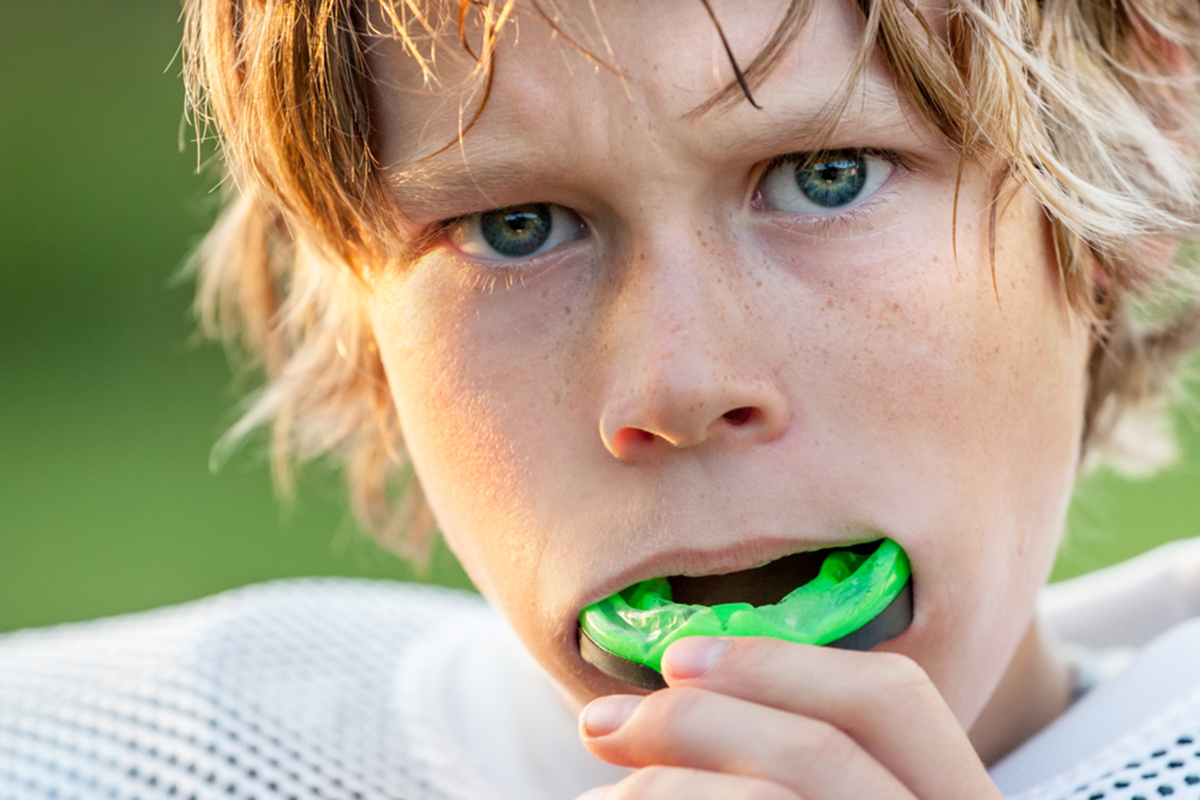Athletes of any age participating in any sports with any risk of physical contact and injury should wear a mouth guard to protect their teeth from injuries. What sports? The list of sports that might not warrant wearing a mouth guard should be a short one. Snooker? Golf?
According to the American Dental Assistants’ Association, 5,000,000 Americans suffer oral injuries while participating in sports. The most common injuries are cracked teeth, fractured roots and tooth intrusions. One of the best, simplest and least expensive ways to reduce the risk of oral injury — however significant — is to wear a custom mouth guard provided by an Edina dentist. Like any piece of essential equipment, a mouth guard will only keep you safe and healthy when well maintained. Unlike most equipment, a mouth guard is worn in your mouth, meaning keeping it clean is especially important. Here’s what you need to know about keeping your mouth guard clean.
Develop a routine
The best advice when it comes to how to keep your mouth guard clean is to do so consistently and regularly so that it becomes a habit and something you do almost without a thought. The ideal way to do that is: to rinse and clean your mouth guard after every time you use it; and to rinse your mouth guard in the mourning before you use it. That habit of cleaning and rinsing will keep your mouth guard clean, free of bacteria and mould and odorless. Regularly cleaning your mouth guard will also give you a chance to inspect it for any signs of wear or damage.
Three options for cleaning your mouth guard
Hydrogen peroxide: Rinse or soak your mouth guard in 3% (three percent) hydrogen peroxide for approximately 10 minutes. After soaking the mouth guard, simply rinse it off and dry it before storing it in its designated container and location — not just tossed loosely into a gym or equipment bag.
Soap and water: Using antibacterial hand soap, simply form a lather with warm water and wash all surfaces of your mouth guard thoroughly before rinsing and drying it.
Your toothbrush: Your toothbrush and toothpaste are perfect tools for keeping your mouthguard clean as long as your toothbrush is soft-bristled and your toothpaste is non-abrasive. If you’re not using a soft-bristled brush and non-abrasive toothpaste, opt for one of the other options instead.
Mouth guard cleaners. Special products are available from your dentist or sports equipment store for soaking and cleaning your mouth guard to remove any bacteria, saliva, plaque, food particles, etc. Simply soak your mouth guard in that solution according to its instructions, then rinse and pat it dry.
One way NOT to clean mouth guards in Edina
Do not place your mouth guard in boiling water. It’s true that the heat will kill germs and bacteria, but that same heat will soften your mouthguard and allow it to become warped and twisted. A softened, warped and twisted mouthguard will not protect you from oral injuries — no matter how clean it is.
If you or a member of your family is an athlete that does not have this essential form of safety equipment, make an appointment with a dentist near you and ask to be fit for a customized mouth guard. Your dentist will take impressions of your teeth and provide you with a mouthguard to keep your teeth safe. Mouth guards near you are available even to protect teeth with braces. Once you have your mouthguard, follow these three rules to reduce your risks of oral injuries: wear it, clean it, and store it safely.

